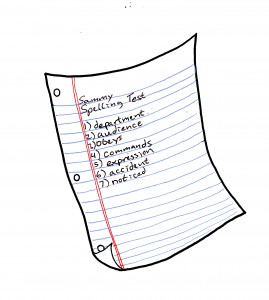Learning to read can be one of the biggest challenges that children face during the course of their education. The human brain is wired for speech but not for the written word; reading must be actively taught rather than, as people learn to speak a language, passively acquired.
Children who struggle with reading typically have difficulty in one or more of the four following areas:
-
Phonics and phonological awareness. The capacity to understand letter-sound correspondence and the ability to hear, recognize, and produce the sounds of spoken words.
-
Reading fluency. The capacity to recognize sight words and to read words fluidly, efficiently, and with appropriate expression.
-
Vocabulary. The capacity to understand the meaning of words while reading and to recognize and use them in communication.
-
Reading comprehension. The capacity to understand and to make sense of what one has read.
Learn more about each of these crucial skills for reading:
Phonics and Phonological Awareness
Phonics is defined as the relationship between written letters and spoken sounds. For example, children with good phonics skills will understand that the letter “d” makes a “duh” sound, that the “s” makes an “sss” sound, and so on.
Phonological awareness is the ability to hear and manipulate the sounds in a spoken language. This means that a child is able to listen to a word and pick out the specific units of sound in it, which we call phonemes. Phonological awareness allows children to understand rhyming words, substitute one sound for another, combine sounds, and take away individual sounds from a word.
Children who struggle with phonics and phonological awareness have difficulty reliably pronouncing and recognizing written words, reading them correctly one day and mispronouncing them the next. They tend to guess at words, often based upon the first letter or two, rather than the whole word. They also have difficulty reading words with rhyming patterns or sounding out new words they have not seen before.
Reading Fluency
Reading fluency refers to the ability to read accurately, effortlessly, and with appropriate flow and expression. The most common reasons for difficulty with reading fluency are difficulty with decoding skills, a lack of practice, and the inability to make reading an automatic process. Children who struggle with reading fluency often display poor comprehension skills, as they need to put so much of their cognitive resources into reading the words, that they have little left to attach meaning to the words they have read.
Vocabulary
Vocabulary refers not only to understanding the meaning of words, but also being able to use them effectively in spoken and written language. Having an excellent vocabulary facilitates an understanding of more complex material and may also serve to help readers recognize a word they may initially have difficulty decoding.
Children who struggle with vocabulary tend to have difficulty in comprehending what they have read. They may also struggle to follow verbal directions when they do not understand a particular word or phrase.
Reading Comprehension
Reading comprehension is described as an active process that engages the reader to construct meaning from text. Comprehension is generally improved when readers can relate what they have read to their knowledge and experiences and build “mental representations in memory.” Basic reading skills, phonological awareness, phonics, reading fluency, and vocabulary, are necessary prerequisites for reading comprehension.
Children who struggle with reading comprehension may have difficulty identifying relevant information. They may be able to explain what has happened in a book but are unable to describe the characters, motivation, or causes of activities. They may also struggle to verbally summarize what they have read.
Receive online class information and helpful tips from Dr. Randy Kulman's LearningWorks for Kids |









